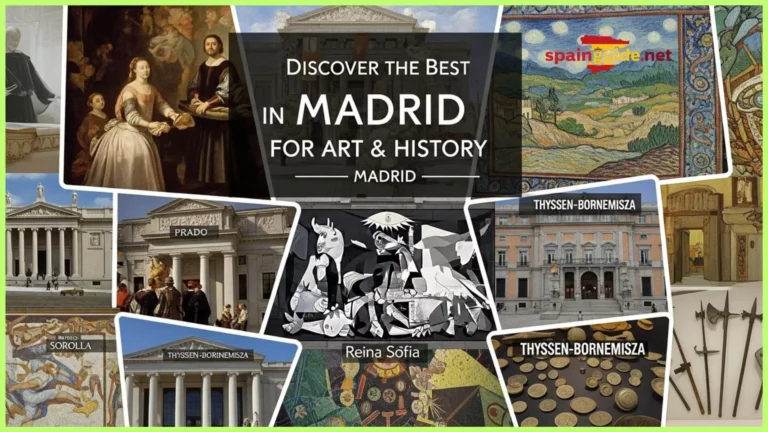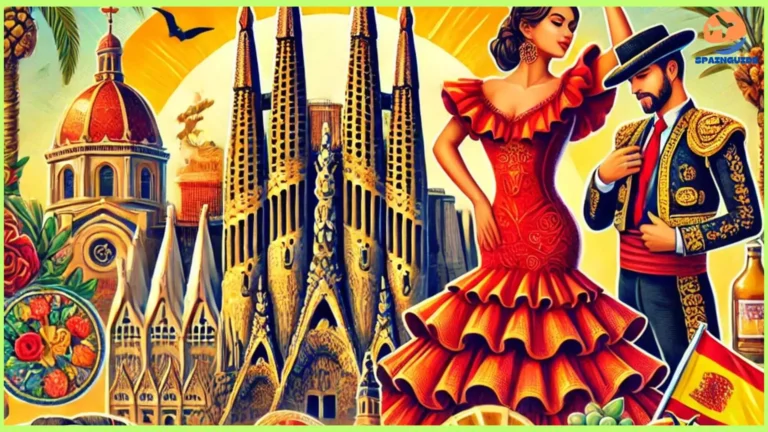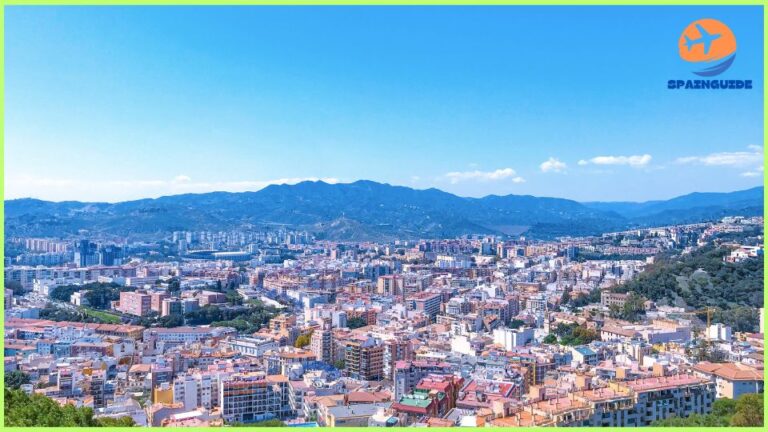Spain is a nation of passion, tradition, and firmly held values. All of Spain, from the streets of Madrid to the seaside towns of Andalusia, has a unique cultural presence. The warmth of its people, the fervor of its festivals, and the weight of its history have all contributed to Spain’s status as one of the world’s most culturally rich nations. But what is of greatest importance in Spanish culture? Is it the love of food, the strong family bonds, or the fiery flamenco rhythms? Let us uncover the fundamental pillars that define Spain’s cultural heartbeat.
Family and Social Life
Family is the backbone of Spanish society. Unlike in many Western cultures, where independence is highly valued, Spaniards maintain strong connections with their families throughout their lives. It is common for multiple generations to live close to one another, sharing daily life and responsibilities.
Why Family Matters So Much in Spain
- Family gatherings are frequent, whether it’s a Sunday lunch or a birthday celebration.
- Elders are highly respected, and their wisdom is cherished.
- Family businesses are common, keeping traditions alive through generations.
The Spanish lifestyle revolves around social interactions. Spaniards love to gather in large groups, whether it’s for a meal, a festival, or just an evening stroll in the plaza. Friendship is considered an extension of family, and people often form lifelong bonds with friends they’ve known since childhood.
Festivals and Celebrations
Spain is known for its extravagant and emotionally charged festivals. Every region has its unique celebrations, often tied to religious or historical events.
Some of the Most Iconic Spanish Festivals
- La Tomatina: A huge battle of tomatoes in Buñol.
- San Fermín (Running of the Bulls) – A thrilling event in Pamplona.
- Semana Santa – A deeply religious festival with grand processions.
- Las Fallas – Valencia’s spectacular fire festival.
These festivals bring people together, showcasing Spain’s love for life, community, and tradition.
Spanish Cuisine: A Culinary Delight
Food is not just a necessity in Spain; it’s an experience. Spaniards take pride in their cuisine, which varies by region but always emphasizes fresh, high-quality ingredients.
Key Elements of Spanish Cuisine
- Tapas Culture – Small, shareable dishes encourage social dining.
- Paella – Spain’s most famous rice dish, originating from Valencia.
- Jamón Ibérico – A delicacy loved across the country.
- Churros con Chocolate – A sweet indulgence, especially for breakfast.
Meals in Spain are long and social, often extending late into the evening.
Flamenco: The Heartbeat of Spain
If there is one art form that embodies the soul of Spain, it’s flamenco. This passionate music and dance style originated in Andalusia and tells stories of love, pain, and triumph through intense rhythms and movements.
Why Flamenco is More Than Just Dance
- It is an emotional expression of Spanish identity.
- It blends singing, guitar playing, and dancing into a mesmerizing performance.
- It has evolved into a worldwide symbol of Spanish culture.
To witness a true flamenco performance is to feel the beating heart of Spain.
Siesta: The Art of Resting
One of Spain’s most well-known customs is the siesta. It’s a midday break, often taken after lunch, allowing people to recharge before continuing their day.
Modern-Day Siesta: A Changing Tradition
While siestas are no longer as common in big cities, the tradition still holds strong in smaller towns, especially in the hot summer months. The idea behind siesta isn’t just about sleep—it’s about balance, taking time to enjoy life rather than rushing through it.
Spanish Language and Dialects
Language is the soul of a culture, and in Spain, it is no different. While Castilian Spanish is the official language, Spain is a country rich in linguistic diversity. Different regions take pride in their native languages, each carrying a deep historical and cultural significance.
The Beauty of Spain’s Linguistic Diversity
- Castilian Spanish is the most widely spoken language, and it is used in media, government, and daily life.
- Catalan – Predominantly spoken in Catalonia, Valencia, and the Balearic Islands, with a distinct identity.
- Basque (Euskera) – One of the most mysterious languages in the world, spoken in the Basque Country.
- Galician – A melodic language spoken in Galicia, closely related to Portuguese.
Language is more than communication in Spain—it’s a marker of regional pride and heritage. Walking through Barcelona, you’ll hear Catalan; in Bilbao, Basque; and in Santiago de Compostela, Galician. Each language tells a story of Spain’s rich and complex history.
Architecture and Historical Landmarks
Spain is a living museum of architectural wonders. Its cities are adorned with grand cathedrals, medieval castles, and awe-inspiring modernist structures. The country’s architecture is a reflection of the various civilizations that have influenced its history, from the Moors to the Romans.
Spain’s Must-See Architectural Marvels
- La Sagrada Familia (Barcelona) – Antoni Gaudí’s masterpiece, still under construction yet breathtaking.
- The Alhambra (Granada) – A stunning Moorish palace that transports visitors to another era.
- The Mezquita (Córdoba) – A mesmerizing blend of Islamic and Christian architecture.
- Park Güell (Barcelona) – A whimsical, colorful park showcasing Gaudí’s genius.
Walking through Spain is like stepping into a history book, where every building whispers the stories of the past.
Bullfighting: A Controversial Tradition
Bullfighting has been an integral part of Spanish culture for centuries, symbolizing bravery, artistry, and tradition. However, in modern times, it has become one of the most debated aspects of Spanish heritage.
The Dual Faces of Bullfighting
- For many, it is an art form, a dramatic performance that showcases skill, elegance, and cultural depth.
- For others, it is outdated and cruel, with growing movements advocating for its abolition.
Regardless of one’s stance, bullfighting remains a powerful emblem of Spain’s complex relationship with tradition and change.
Spanish Passion for Football
If there’s one thing that unites Spaniards from all regions, it’s their love for football. Football is more than just a sport in Spain—it’s a religion, a way of life, and a source of immense pride.
Football as Spain’s National Passion
- La Liga is home to legendary clubs like Real Madrid and FC Barcelona.
- International Glory – Spain’s national team won the FIFA World Cup in 2010, a moment of immense national pride.
- El Clásico – The fierce rivalry between Real Madrid and Barcelona that captures global attention.
Football matches are electrifying events, with fans pouring into stadiums, waving flags, and singing anthems with their hearts on their sleeves. The passion is undeniable.
Art and Literature
Spain has gifted the world with some of the greatest artists and writers of all time. Whether in the form of paintings, sculptures, or literary masterpieces, Spanish art and literature have left an indelible mark on humanity.
Spain’s Artistic and Literary Icons
- Pablo Picasso – The father of Cubism, a revolutionary artist whose works, like Guernica still move people.
- Salvador Dalí – The surrealist genius who created mind-bending works of art.
- Miguel de Cervantes – The author of Don Quixote, one of the most important literary works ever written.
From the walls of the Prado Museum to the pages of classic novels, Spain’s artistic legacy is eternal.
Spanish Nightlife and Social Culture
Spain truly comes alive at night. Unlike many other countries where nightlife ends early, Spaniards embrace the night as a time to celebrate, connect, and unwind.
What Makes Spanish Nightlife Unique?
- Late Dinners – Dinner often starts as late as 10 PM, extending the night’s activities.
- Tapas and Bar-Hopping – Spaniards love to move from bar to bar, savoring small dishes and drinks.
- Clubs and Music – Cities like Madrid, Ibiza, and Barcelona boast some of the world’s best nightlife scenes.
But beyond the parties, one of Spain’s most beautiful traditions is “sobremesa”—the long, relaxed conversations after a meal. In Spain, meals aren’t rushed; they’re moments to bond, reflect, and simply enjoy life.
The Role of Religion in Spain
Although Spain has become more secular in recent decades, religion still plays a crucial role in its culture and traditions. Catholicism has shaped Spain’s history, art, and way of life.
Religious Influence on Spanish Culture
- Magnificent Cathedrals – Spain is home to some of the world’s most breathtaking churches, including the Santiago de Compostela Cathedral.
- Holy Week (Semana Santa) – A solemn and grand religious festival featuring dramatic processions.
- El Camino de Santiago – A famous pilgrimage route that draws thousands of people from around the world.
While fewer Spaniards actively practice religion today, its influence remains deeply woven into the country’s identity.
Mediterranean Lifestyle: Living the Spanish Way
One of the most admirable aspects of Spanish culture is its emphasis on enjoying life. Spaniards prioritize relaxation, leisure, and meaningful social interactions.
The Essence of the Spanish Lifestyle
- A Slow Pace of Life – Life isn’t about rushing; it’s about savoring every moment.
- Work-Life Balance – Spaniards value their free time, whether it’s enjoying a long lunch or taking a walk.
- Community and Togetherness – The Spanish way of life revolves around social bonds and shared experiences.
It’s no surprise that Spain consistently ranks among the happiest and healthiest countries in the world.
Spanish culture is a captivating mix of history, tradition, passion, and laughter. Whether manifested in its decadent festivals, sorrowful flamenco, abundant gastronomy, or tight family life, Spain embraces life with open arms. It is a country that learns to celebrate, to unwind, to love, and to live with intensity.
If there’s one thing to learn from Spanish culture, it’s this: Life is to be enjoyed, shared, and savored.
FAQs
1. What is the most important tradition in Spain?
There isn’t just one! Spain is known for many traditions, including flamenco, siestas, tapas, and its incredible festivals like La Tomatina and Semana Santa.
2. Why is Spanish cuisine so famous?
Spanish food is all about fresh ingredients, bold flavors, and social dining. Tapas, paella, and jamón are some of the most beloved dishes worldwide.
3. How important is family in Spanish culture?
Family is everything in Spain. Spaniards maintain strong family bonds throughout their lives, and family gatherings are a major part of their social lives.
4. Why do Spaniards eat dinner so late?
The Spanish schedule is different from many other countries. Due to the long lunch breaks and siesta tradition, dinner often starts around 9-10 PM.
5. What makes Spain’s festivals unique?
Spain’s festivals are full of passion, history, and emotion. Whether it’s the chaotic fun of La Tomatina or the deep spirituality of Semana Santa, Spanish celebrations are unforgettable.







